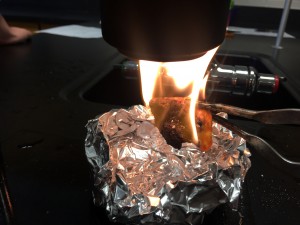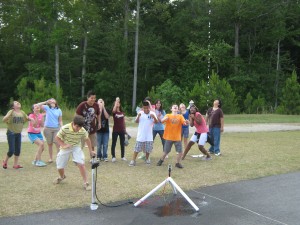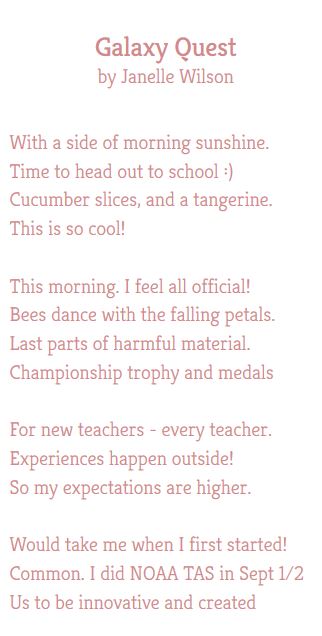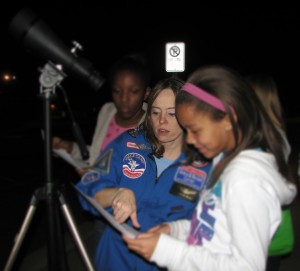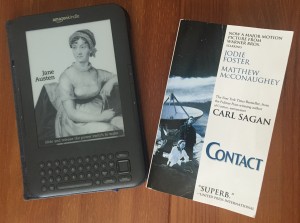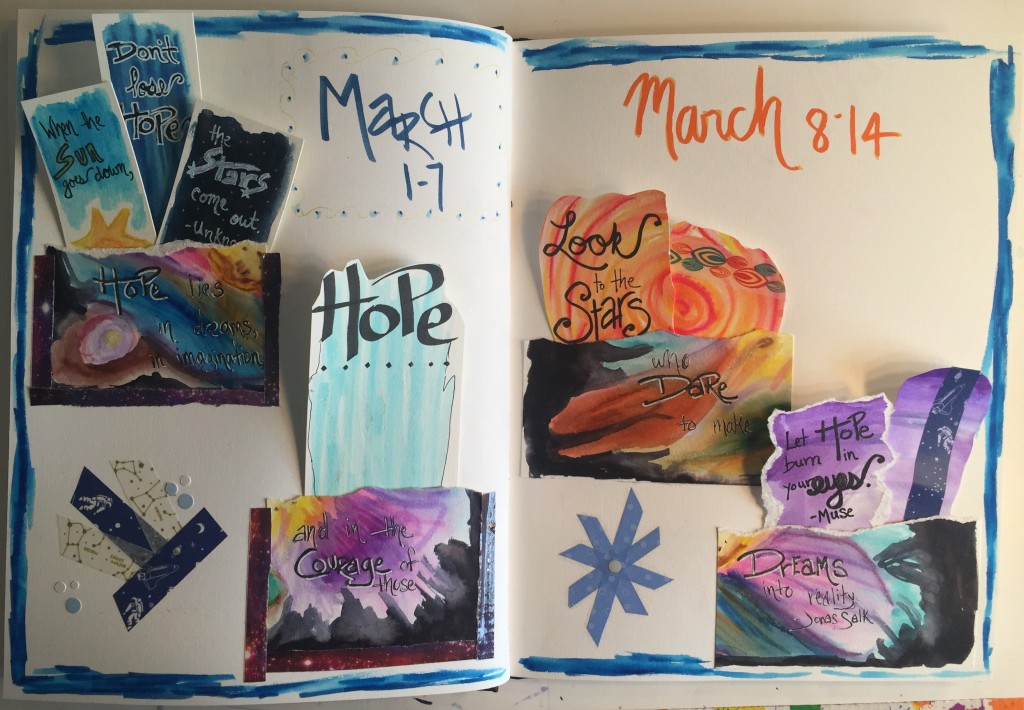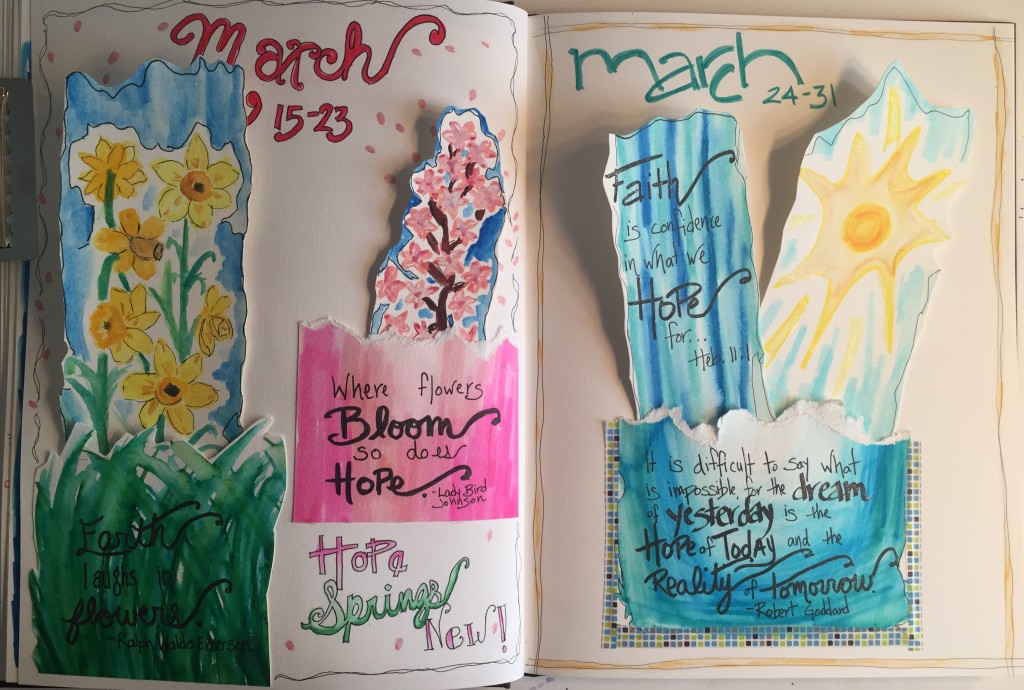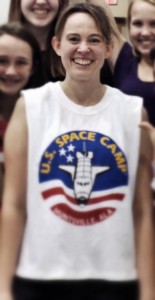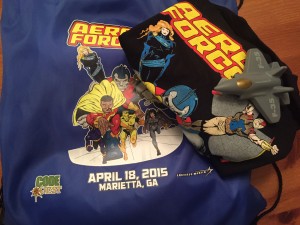
Today I accompanied three of our high school students to the Code Quest competition at Lockheed Martin’s Marietta plant. The competition to to give students exposure to Lockheed Martin and have fun while solving some Java coding problems. The theme for the event was Superheroes, and students were encouraged to come in costume. Initially, my team was planning to dress up as Guardians of the Galaxy characters. However, at the last minute they decided to be everyday heroes instead. So, one girl wore fatigues (she is entering the Air Force Academy after graduation), another girl dressed as a physician, and finally our last team member dressed as the tenth Doctor (from Doctor Who) complete with red blue 3D glasses. (I wore my blue flight suit because I don’t need much of an excuse to put that thing on!)
The emcee for the event was dressed as Captain America, and a couple other of the Lockheed staff were dressed up, too. Once we registered and had our group photo, we headed down to cafeteria/competition area. It soon became apparent that no one else was really dressed up for the event. My kids started having fun run away. There was music playing, so they danced along in their seats, they interacted with staff members, and got set up for the competition. Once the welcome started, they asked who had the most spirit, and my group was the most animated. We were even invited up on stage to help lead warm up exercises. I was also impressed as I watched my kids interact with others, especially the Lockheed Martin volunteers. They were kind, respectful, and considerate. They made a fantastic impression.
Throughout the day, so many of the Lockheed Martin employees came up to me to say how impressed they were with our students. They also thanked us for coming, for dressing up, for having fun. In fact, one of the community relations representatives gave me his card and offered to bring some engineers to our school to talk to our students. I noticed that my kids were kind to everyone, cheering on all winners, and very engaged the entire day. They were happy to be there, and they had fun!
At the awards, my kids swept the costume contest. We didn’t win any of the coding prizes, but we weren’t expecting to. However, we won something much more. They won exposure. My students showed how awesome high school students can be. They left a great impression, and I am so proud of them!
